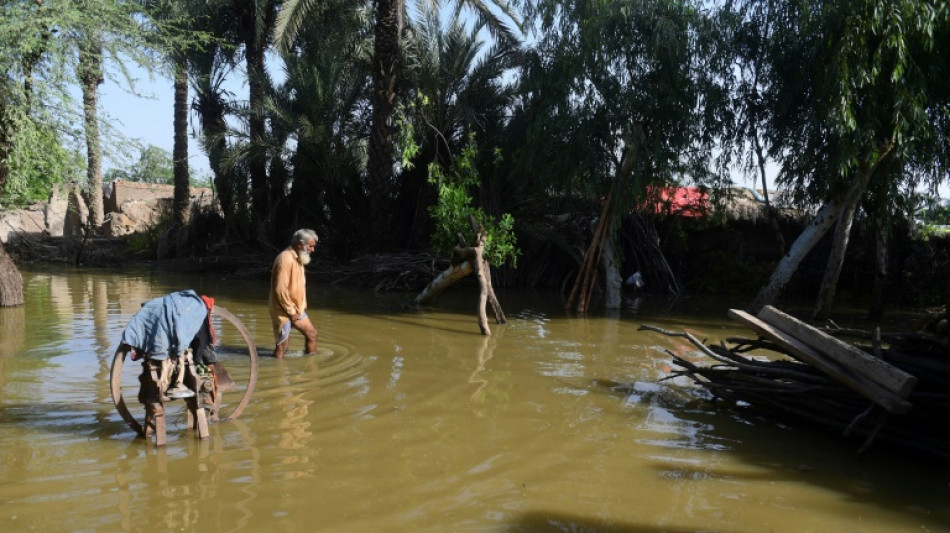
-
 Sabalenka fires Australian Open warning with Brisbane domination
Sabalenka fires Australian Open warning with Brisbane domination
-
In Gaza hospital, patients cling to MSF as Israel orders it out

-
 New protests hit Iran as alarm grows over crackdown 'massacre'
New protests hit Iran as alarm grows over crackdown 'massacre'
-
Svitolina powers to Auckland title in Australian Open warm-up

-
 Keys draws on happy Adelaide memories before Australian Open defence
Keys draws on happy Adelaide memories before Australian Open defence
-
Scores of homes razed, one dead in Australian bushfires

-
 Ugandan opposition turns national flag into protest symbol
Ugandan opposition turns national flag into protest symbol
-
Bears banish Packers, Rams survive Panthers playoff scare

-
 'Quad God' Malinin warms up for Olympics with US skating crown
'Quad God' Malinin warms up for Olympics with US skating crown
-
India eyes new markets with US trade deal limbo
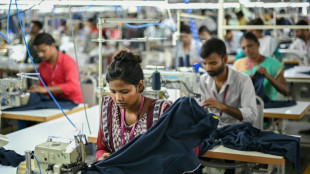
-
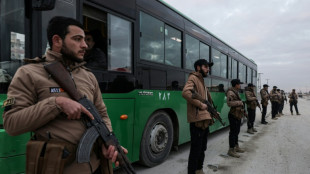 Syria's Kurdish fighters agree to leave Aleppo after deadly clashes
Syria's Kurdish fighters agree to leave Aleppo after deadly clashes
-
New York's Chrysler Building, an art deco jewel, seeks new owner
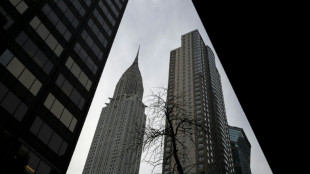
-
 AI toys look for bright side after troubled start
AI toys look for bright side after troubled start
-
AI pendants back in vogue at tech show after early setback

-
 Grateful Dead co-founder and guitarist Bob Weir dies aged 78
Grateful Dead co-founder and guitarist Bob Weir dies aged 78
-
Myanmar votes in second phase of junta-run election
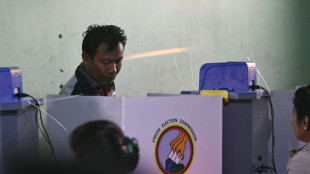
-
 'One Battle After Another' heads into Golden Globes as favorite
'One Battle After Another' heads into Golden Globes as favorite
-
Rams survive Panthers scare to advance in NFL playoffs

-
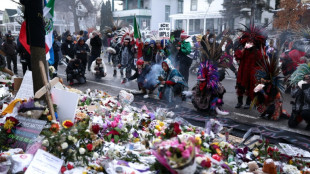 Rallies across US after woman shot and killed by immigration agent
Rallies across US after woman shot and killed by immigration agent
-
Egypt dump out holders Ivory Coast as Nigeria set up AFCON semi with Morocco

-
 Rosenior salutes 'outstanding' start to Chelsea reign
Rosenior salutes 'outstanding' start to Chelsea reign
-
Maduro loyalists stage modest rally as Venezuelan govt courts US

-
 Byrne late penalty fires Leinster into Champions Cup last 16 after 'ding-dong' battle
Byrne late penalty fires Leinster into Champions Cup last 16 after 'ding-dong' battle
-
Rosenior makes flying start as Chelsea rout Charlton in FA Cup

-
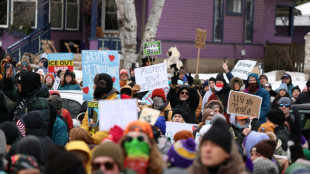 Rallies across US against shooting of woman by immigration agent
Rallies across US against shooting of woman by immigration agent
-
Salah closer to AFCON glory as Egypt dethrone champions Ivory Coast

-
 O'Neil ends 'crazy three days' with Strasbourg cup canter
O'Neil ends 'crazy three days' with Strasbourg cup canter
-
Mitchell leads Cavs over T-Wolves

-
 O'Neil ends 'crazy few days' with Strasbourg cup canter
O'Neil ends 'crazy few days' with Strasbourg cup canter
-
Argentina wildfire burns over 5,500 hectares: governor

-
 Byrne late penalty fires Leinster into Champions Cup last 16
Byrne late penalty fires Leinster into Champions Cup last 16
-
Roma beat Sassuolo to close in on Serie A leaders Inter

-
 Villa's FA Cup win at Spurs leaves Frank on the brink
Villa's FA Cup win at Spurs leaves Frank on the brink
-
Osimhen focused on Nigeria glory not scoring record

-
 Undav calls shots as Stuttgart thump Leverkusen
Undav calls shots as Stuttgart thump Leverkusen
-
Venezuelan prisoners smile to hear of Maduro's fall
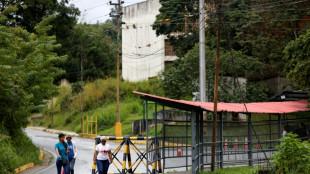
-
 Thousands of Irish, French farmers protest EU-Mercosur trade deal
Thousands of Irish, French farmers protest EU-Mercosur trade deal
-
Kiplimo captures third straight world cross country title

-
 Osimhen leads Nigeria past Algeria into AFCON semi-finals
Osimhen leads Nigeria past Algeria into AFCON semi-finals
-
US urges fresh talks between Syria govt, Kurds after deadly clashes
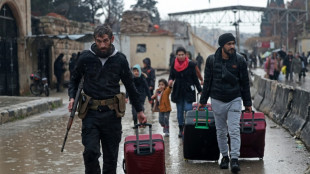
-
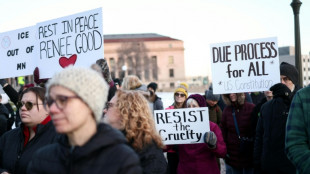 Weekend of US protests after woman killed by immigration agent
Weekend of US protests after woman killed by immigration agent
-
Monaco cling on with 10 men to avoid French Cup shock

-
 Rooney close to tears as brother masterminds FA Cup history
Rooney close to tears as brother masterminds FA Cup history
-
Semenyo scores on Man City debut in 10-goal rout of Exeter

-
 Villarreal sink Alaves to stay in La Liga hunt
Villarreal sink Alaves to stay in La Liga hunt
-
Bristol, Glasgow reach Champions Cup last 16

-
 Freiburg beat 10-man Hamburg to climb to eighth in the Bundesliga
Freiburg beat 10-man Hamburg to climb to eighth in the Bundesliga
-
Venezuela loyalists to rally one week after Maduro's capture
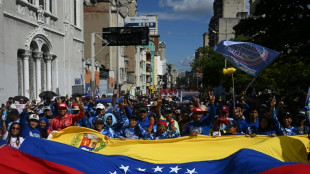
-
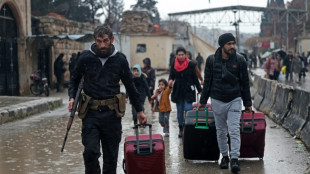 Syrian authorities transferring Kurdish fighters from Aleppo to northeast
Syrian authorities transferring Kurdish fighters from Aleppo to northeast
-
Football: Five memorable FA Cup upsets


'Everything is destroyed': Pakistan flood survivors plead for aid
The smattering of homes in Panjal Sheikh started to collapse one by one, as torrential rain lashed the tiny southern Pakistani village and flooded the vast stretches of farmland around it.
After nearly two weeks of incessant downpours this month, there was nothing left but damaged walls, debris and piles of people's belongings poking out among pools of brown floodwater and grey mud.
The residents of Panjal Sheikh are among the tens of millions hit across Pakistan by the worst monsoon floods in a decade, which have destroyed or damaged nearly a million homes and killed more than 1,000 people since the rains began in June.
"When it started raining, there was destruction in every direction," said Panjal Sheikh resident Mukhtiar Ahmed.
"As we rushed to try and save the children in a house that had just collapsed, another house fell, and then another," he told AFP on Sunday.
"The whole village has been erased."
Pakistan receives heavy -- often destructive -- rains during its annual monsoon season, which are crucial for agriculture and water supplies.
But the catastrophic damage from this year's downpours and flooding has not been seen for decades.
Pakistani officials blame climate change, which is increasing the frequency and intensity of extreme weather around the world.
- 'We are in deep pain' -
The relentlessness of the disaster was shocking, said Ghulam Rasool, the 80-year-old village head of Panjal Sheikh -- which lies less than 25 kilometres from the banks of the mighty Indus River.
"There was a loud sound suddenly, and we could not figure out what had happened," he told AFP.
He suspected that his son's small home on the family land had collapsed.
"We thought all the four had died," Rasool said, referring to his son, daughter-in-law and their two children.
As the family tried and failed to keep the floodwaters from rising on their land, Rasool's pregnant daughter went into labour.
"I felt the pain but I was scared to tell anyone," said Naheed Sheikh, 30. "I finally told my mother."
Through the driving rain, her family managed to get her to an unkempt hospital where her daughter was delivered via a caesarean section.
Her ordeal continued when she got home.
"I was half asleep in my room... when we felt that the room could collapse," she told AFP.
"I rushed out with my daughter in my arms and the walls fell as soon as we got out."
The rooms Rasool had built for his other sons and daughters also fell one after another.
At the end of the 13 days of rain, he surveyed what remained, stumbling through heaps of straw, personal belongings and the piles of firewood he would sell to make ends meet.
- Desperate for aid -
He said he pushed down the weak walls that remained so they do not fall on any passersby.
"Everything is destroyed. We can't even cook a meal for ourselves," Rasool said.
"We are in deep pain and waiting for someone to help us."
Many flood survivors from villages such as Panjal Sheikh have made their way to Sukkur, the largest city nearby, hoping for assistance.
Some sat along an elevated highway under tents fashioned from plastic sheets.
As two military trucks passed carrying food, sacks of wheat, tents and cooking pots, a crowd of people rushed towards them.
Some desperately tried to climb up the trucks, fighting each other to try and reach the aid items.
Soldiers shouted at them to form a queue, but few listened.
F.Qawasmeh--SF-PST


